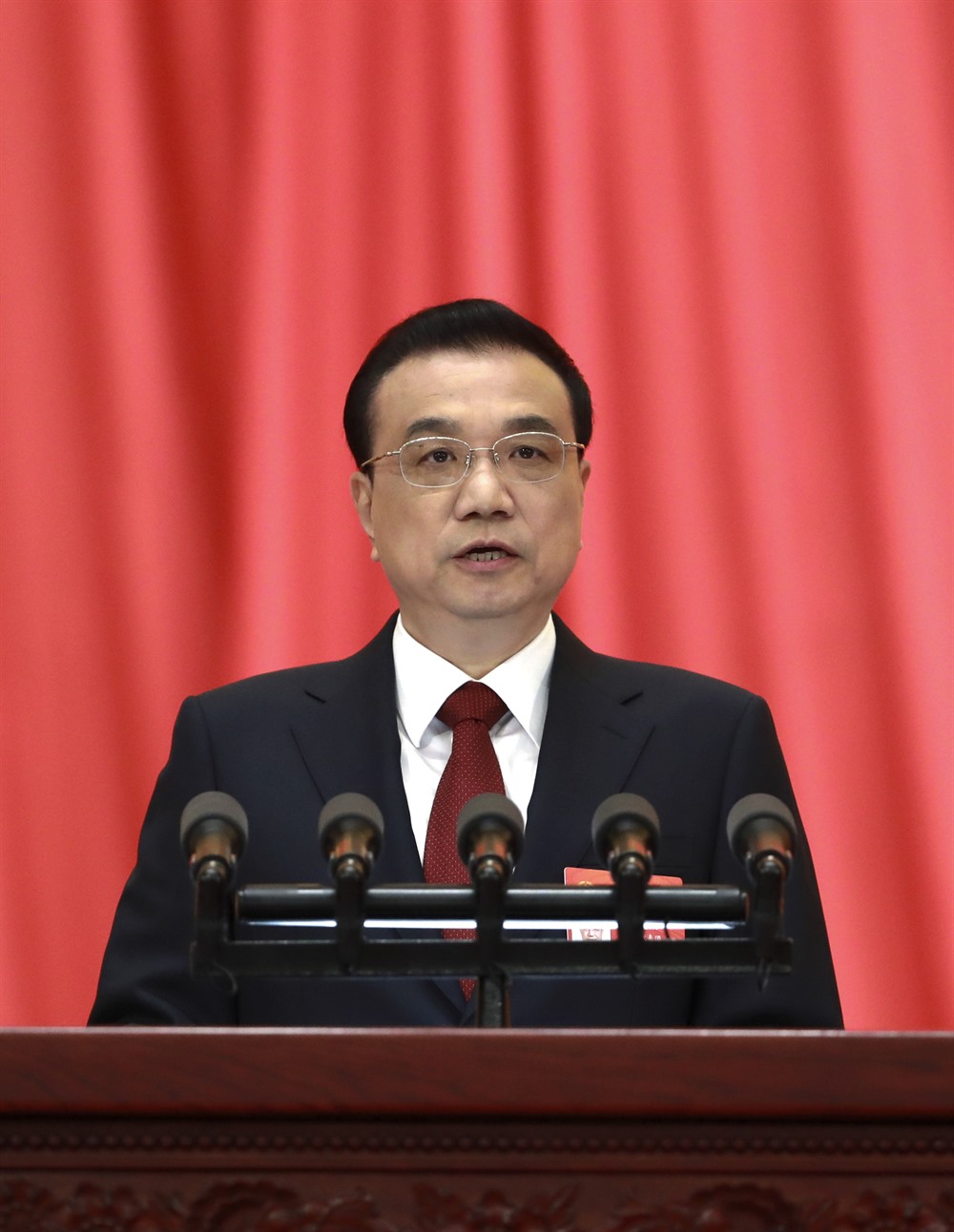 World
World

China's premier warned yesterday that the country faces a "tough struggle" as he unveiled tax cuts and other measures to prop up an economy expected to slow further this year.
 |
| Chinese Premier Li Keqiang delivers a government work report at the opening meeting of the second session of the 13th National People’s Congress at the Great Hall of the People in Beijing, capital of China on March 5.— XINHUA/VNA Photo |
BEIJING — China’s premier warned yesterday that the country faces a "tough struggle" as he unveiled tax cuts and other measures to prop up an economy expected to slow further this year.
Premier Li Keqiang told the opening session of China’s annual National People’s Congress that the government is targeting growth of 6.0 to 6.5 per cent this year for the world’s second-largest economy, lowering its range from 2018.
The slowdown and trade war have turned into major challenges for President Xi Jinping, one year after the NPC boosted his status as the country’s most powerful leader since Mao Zedong by abolishing term limits and etching his name into China’s constitution.
Nearly 3,000 delegates from across the country gathered under smoggy skies and tight security for the two-week session, with legislation aimed at improving conditions for foreign investors topping the agenda.
"In pursuing development this year, we will face a graver and more complicated environment as well as risks and challenges, foreseeable and otherwise, that are greater in number and size," Li said in his speech.
"We must be fully prepared for a tough struggle," he said.
The government had set a target of around 6.5 per cent in 2018 and eventually recorded official growth of 6.6 per cent -- the slowest pace in nearly three decades.
Three-quarters of provinces have already lowered their annual growth targets this year.
"We have made a moderate adjustment to our projection on the basis of a thorough assessment of destabilising factors and uncertainties affecting the economic performance," Li said as he read a work report to the congress.
To combat slowing growth, policy-makers have said they will lower taxes, reduce fees, and streamline red tape.
China will cut company taxes and employer social insurance contributions paid on behalf of workers by nearly 2 trillion yuan (US$298 billion), according to a government report presented to the congress.
The value-added tax for manufacturers will be lowered to 13 per cent from 16 per cent and drop one percent for transportation and construction industries.
Beijing will also pick up spending, with China’s targeted fiscal deficit set to increase to 2.8 percent of GDP, from 2.6 per cent last year.
Fiscal policy will be "proactive", while monetary policy will remain "prudent", he said.
To combat problems facing small business, Beijing will raise the VAT threshold to 100,000 yuan ($15,000) in monthly sales, from 30,000 yuan ($4,500) and direct large state banks to lend 30 percent more to small firms this year.
Beijing is determined to achieve above six per cent growth for the next two years to deliver on its promise of doubling GDP for the decade ending 2020, said Lu Ting, an analyst at Nomura bank.
Economic difficulties
As the economy slows, the government has unveiled a military budget increase of 7.5 per cent to 1.2 trillion yuan ($177.6 billion), lower than last year’s 8.1 percent hike.
Recent economic data point to the difficulties China faces, with growth in the last three months of 2018 clocking in at 6.4 per cent.
In January, an important barometer of prices in the country’s industrial sector eased further, nearing contraction territory and potentially denting corporate profits. China’s imports also fell at the start of the year.
Manufacturing activity has shrunk for three straight months, recording its worst performance in three years in February.
But the country’s roller-coaster stock market has recently turned into a bright spot, hitting its highest point in more than eight months on Monday as renewed optimism about a trade deal with the US helped extend a bull run that began in January. — AFP